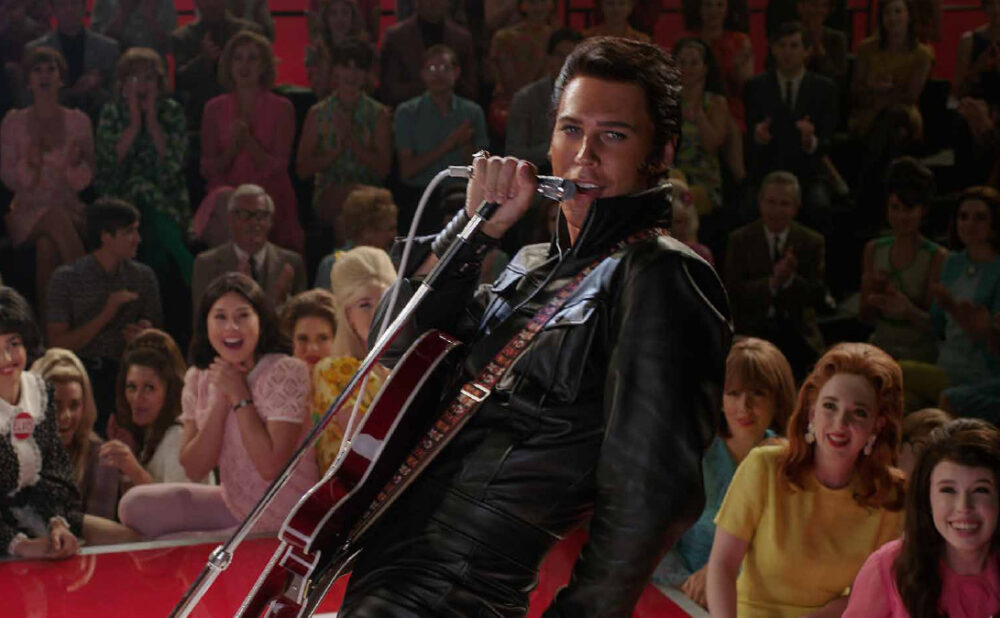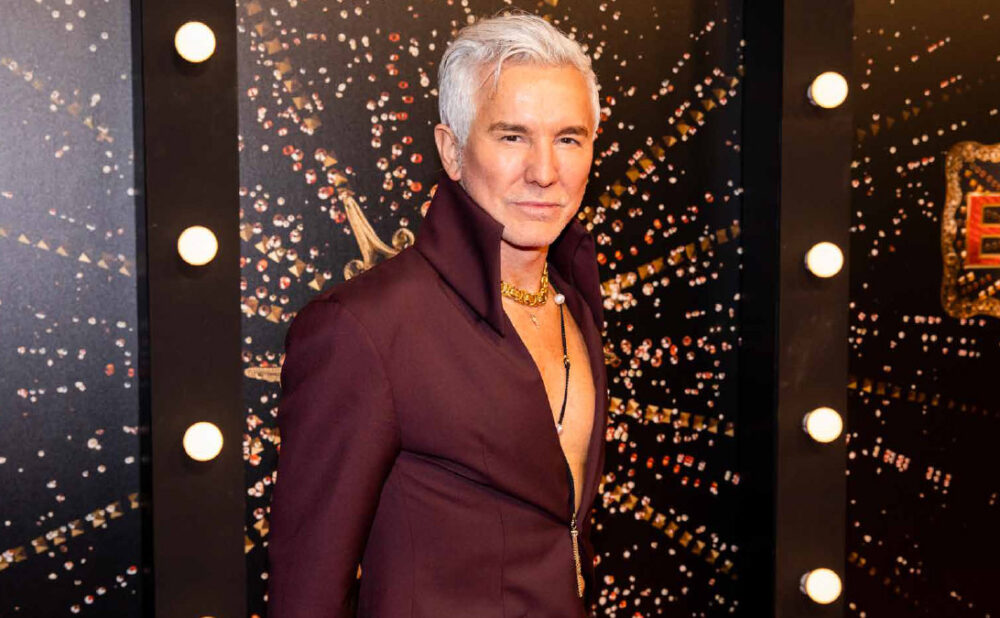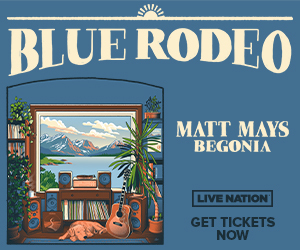Lavish Luhrmann couldn’t resist Elvis’ operatic story
Elvis director says Shakespeare would have had fun telling tale as grand and tragic as the iconic singer’s
Elvis
Where: In theatres
What: Movie, 169 mins.
When: Now
Genre: Biopic
Why you should watch: Extravagant director Baz Luhrmann sinks his shimmering teeth into a story he was born to tell: the tale of The King of Rock ’n’ Roll, Elvis Presley. A strong narrative propels Luhrmann’s magnificent visuals in a film that tells Presley’s personal story as well as celebrating rock and roll while exploring cultural appropriation, censorship, celebrity and more. Leads Austin Butler as Elvis and Tom Hanks as manager Col. Tom Parker are excellent.
Known for extravagantly beautiful and grand films like Moulin Rouge, Romeo + Juliet and The Great Gatsby, where music is key, perhaps it was inevitable that masterful director Baz Luhrmann would successfully turn his lens on the larger than life — largest of lives? — story of Elvis Presley, with the glorious new film and box-office hit, Elvis the result.
During a recent return to Toronto to promote his new film — he lived in the city during the filming of Romeo + Juliet and “loved it” — Luhrmann explains what drew him to Elvis.
“I like bios, but I didn’t want to do a biopic,” the affable director explains. “I like the way someone like Shakespeare takes an historical figure and explores a big idea. A contemporary film version of that would be Amadeus, the way it’s not really about Mozart, it’s about jealousy.
“So, I just thought that Elvis was sitting there and his story’s never been told really. He’s so inextricably linked with popular culture in the ’50s: you’ve got Marilyn Monroe, Elvis; in the ’60s, he’s kind of caught in the Hollywood bubble and then he’s relegated to being nothing. Then, in the ’70s, he reclaims his Black music roots and he also ends up being caught in a trap in the first-ever Vegas showroom, which is invented to entrap him by Col. Tom Parker; never a colonel, never Tom, never Parker,” chuckles Luhrmann.
“If you’re writing an opera, that’s a frigging great libretto, that’s a great book to base a musical story on, it just happens to be true.
“Imagine Shakespeare himself got his hands on the story where a guy is born a twin, from the moment he is born there is another spiritual existence that he has. Then his father is shamed by going to jail, then they’re dirt, dirt, dirt poor. Then they have to travel around, they end up in one of the few white houses in the Black community.”
An early, powerful scene sees an adolescent Elvis and a pal slip into a Black gospel tent service near his home. Elvis is swept up by “the spirit” and falls rapturously into the preacher’s arms. Luhrmann insists the scene is based on a true story he heard from an eye witness.
“Then he ends up being this weirdo, he was wearing eye makeup, he was wearing crazy clothes at school — fluid before fluid was invented. They were beating him up and then he ends up being one of the few white faces on Beale Street and then boom! — overnight, before there was a precedent for fame, for teenage fame, he’s the most famous man on the planet with so much money.”
An honest exploration of Elvis has to touch on cultural appropriation and attacks on Elvis for ripping off Black culture or even being racist.
“Honestly, do you think I’d be doing the movie if I thought Elvis was a racist? I’ve done five years of research, couldn’t find anything but genuine empathy and friendships in the Black community. You only have to look at the photos.”
Luhrmann acknowledges “it’s an area of grey” and he enlisted Black music historian Nelson George, an African-American, to research Elvis’ relationship with the Black community.
“I said to Nelson, “smash it open” all I want to know is the truth. The truth is, the racist slur is a lie, just a fragging lie.
“And yet, at some point, a rapper (Chuck D on Fight the Power) goes ‘Elvis was a racist’ and a whole generation thinks Elvis is a racist.”
Luhrmann points to Elvis’s regular employment of the Sweet Inspirations gospel singers as well as friendships and working relationships with other Black musicians as proof of Elvis’ connection with the community.
“Cultural appropriation is something that needs to be dissected and dealt with. And what a lot of people can’t see, it’s not about saying you can’t have influences. It’s about acknowledging the influences and making sure that the right compensation, the financial part is right too.”
Elvis’s friendships with rock and blues pioneers B.B. King, Little Richard and Sister Rosetta Thorpe form an important storyline in the film.
Luhrmann notes, “Little Richard said, ‘God, if Elvis didn’t cover my song, I wouldn’t have made anything because he opened the door to my music to white kids.’
“The problem comes when Col, Tom Parker calls Elvis ‘the King,’ Elvis hated that. Someone calls him ‘the King in the film, and he says ‘I’m not the King’ and he says, ‘Hey Fats (Domino), come over here,’ and says ‘Guys, this is the real king of rock and roll.’
“Personally, Elvis was constantly acknowledging the lineage.”
The film captures how incendiary Elvis’s cultural “mixing” of the races was and how threatened the southern white power structure was by his move from country to rock and roll.
“I get it, he’s a Halloween costume, a joke, right? What gets lost in all of that is that this guy, they were going to kill him in the south for the way he moved on stage, the music he made, for having Black friends and playing Black music, for breaking segregation walls. He was a frigging punk!”
And Luhrmann powerfully conveys that punk ethos and the power of rock and roll in the film. An early, adrenalin-soaked scene captures Elvis’s transition from passive to revolutionary, using hip shakes and pelvic thrusts to unlock the id of suddenly primal teenaged fans. I tell Luhrmann this scene creates a visual manifestation of what hearing rock and roll feels like.
“I am so glad you say that because that was my intention,” says Luhrmann noting he listened to audience sounds from early Elvis live recordings
“All of sudden, you hear girls keening, which is kind of high-pitched screaming, and I’ve heard it because I went to a BTS concert and when they came on stage, it’s kind of like a sonic sound, it’s just not like screaming, it’s like an alarm.
“Elvis was so much more punk when he was performing in the early days, he really did hump a dog on stage and he would spit and growl, he was so frigging punk and he’d whip the audience up like they were in a gospel tent. And I think that part of the story has been misunderstood or left out. He was just so far out.”
He says of Elvis’s early performances: “He just sounds like The Clash,” and the director insists the first Clash album cover was based on an early Elvis LP.










